-
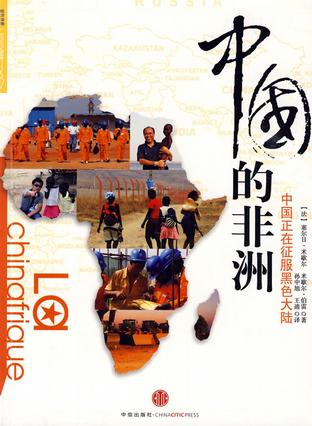
中国的非洲
《中国的非洲》:从一个侧面反映改革开放30年的巨大成就 讲述投资建设非洲的种种故事和遭遇 描绘中非经济政治合作的新图景 由于中国在非洲的投资和建设,这块黑色大陆不再是一个被边缘化的大陆,它正在经历前所未有的高速经济增长,开始重新被世界所重视。 刚果建设、城市规划、住房和土地改革部部长克洛德·阿方斯·恩西卢说:“中国人真是太了不起了!他们给我们建了马桑巴体育馆、外交部大楼和电视台。现在正在建设英布鲁水电站和布拉柴维尔的市政供水系统。他们给我们建机场,铺设黑角一布拉柴维尔的高速公路。他们还给我们建住房,在河边给我们建休闲公园。在奥约、(总统的故乡),他们还建了一所综合性医院,还修了公路,建了住房。这些都是已经决定的事,协议都签了。这一切对我们来说是双赢!” -
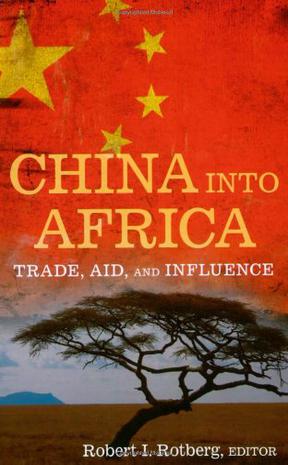
China into Africa
-
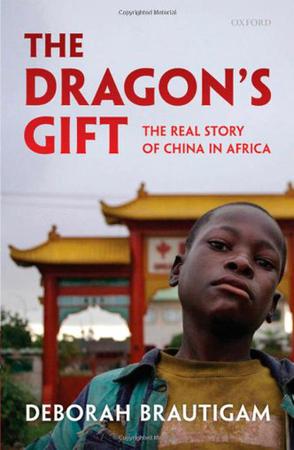
The Dragon's Gift
Is China a rogue donor, as some media pundits suggest? Or is China helping the developing world pave a pathway out of poverty, as the Chinese claim? In the last few years, China's aid program has leapt out of the shadows. Media reports about huge aid packages, support for pariah regimes, regiments of Chinese labor, and the ruthless exploitation of workers and natural resources in some of the poorest countries in the world sparked fierce debates. These debates, however, took place with very few hard facts. China's tradition of secrecy about its aid fueled rumors and speculation, making it difficult to gauge the risks and opportunities provided by China's growing embrace. This well-timed book, by one of the world's leading experts, provides the first comprehensive account of China's aid and economic cooperation overseas. Deborah Brautigam tackles the myths and realities, explaining what the Chinese are doing, how they do it, how much aid they give, and how it all fits into their "going global" strategy. Drawing on three decades of experience in China and Africa, and hundreds of interviews in Africa, China, Europe and the US, Brautigam shines new light on a topic of great interest. China has ended poverty for hundreds of millions of its own citizens. Will Chinese engagement benefit Africa? Using hard data and a series of vivid stories ranging across agriculture, industry, natural resources, and governance, Brautigam's fascinating book provides an answer. It is essential reading for anyone concerned with China's rise, and what it might mean for the challenge of ending poverty in Africa. -
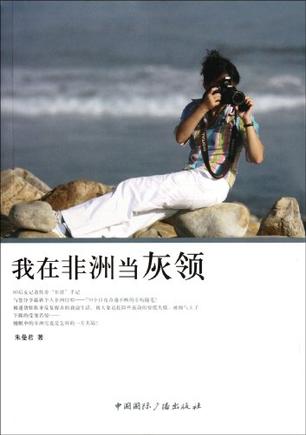
我在非洲当灰领
今天我们经常抱怨大多数西方人眼里的中国是历史的中国,而不是现代的中国。那么也可以说:今天大多数中国人眼里的非洲,也还停留在历史的回忆和不同程度的想象之中。这与中非关系的发展、非洲大陆的进步和全球政治格局的变化格格不入。 这本《我在非洲当灰领》,是一个年轻女记者朱曼君非洲生活、工作的奇妙亲历。作者的非洲故事生动、活泼,很好读。 《我在非洲当灰领》以传奇般的经历和精妙独到的文笔,向我们铺展出一个五彩斑斓的21世纪的新非洲。 -
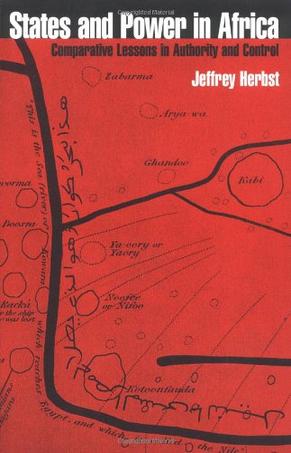
States and Power in Africa
Theories of international relations, assumed to be universally applicable, have failed to explain the creation of states in Africa. There, the interaction of power and space is dramatically different from what occurred in Europe. In his ground-breaking book, Jeffrey Herbst places the African state-building process in a truly comparative perspective, examining the problem of state consolidation from the precolonial period, through the short but intense interlude of European colonialism, to the modern era of independent states. Herbst's bold contention - that the conditions now facing African state-builders existed long before European penetration of the continent - is sure to provoke controversy, for it runs counter to the prevailing assumption that colonialism changed everything. In identifying how the African state-building process differs from the European experience, Herbst addresses the fundamental problem confronting African leaders: how to extend authority over sparsely settled lands. Indeed, efforts to exert control over vast, inhospitable territories of low population density and varied environmental and geographical zones have resulted in devastating wars, millions of refugees, and dysfunctional governments perpetrating destructive policies. Detailing the precise political calculations of distinct African leaders, Herbst isolates the basic dynamics of African state development. In analyzing how these leaders have attempted to consolidate power, he is able to evaluate a variety of policy alternatives for dealing with the fundamental political challenges facing African states today. -
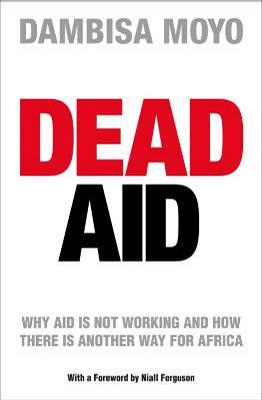
Dead Aid
There is no doubt: we want to help. The well-documented horrors of extreme poverty around the world have created a moral imperative that people have responded to in their millions. Yet the poverty persists. At a time of unprecedented global prosperity, children are starving to death. Are we not being generous enough? Or is the problem somehow insoluble, an inevitable outcome of historical circumstance? In this provocative and compelling book, Dambisa Moyo argues that the most important challenge we face today is to destroy the myth that Aid actually works. In the modern globalized economy, simply handing out more money, however well intentioned, will not help the poorest nations achieve sustainable long-term growth. Dead Aid analyses the history of economic development over the last fifty years and shows how Aid crowds out financial and social capital and directly causes corruption; the countries that have ‘caught up’ did so despite rather than because of Aid. There is, however, an alternative. Extreme poverty is not inevitable. Dambisa Moyo also shows how, with improved access to capital and markets and with the right policies, even the poorest nations could be allowed to prosper. If we really do want to help, we have to do more than just appease our consciences, hoping for the best, expecting the worst. We need first to understand the problem.